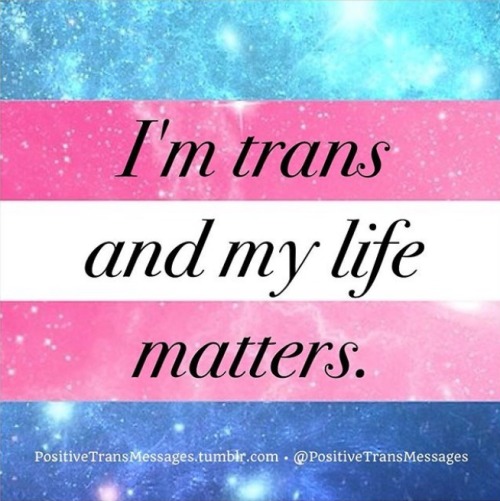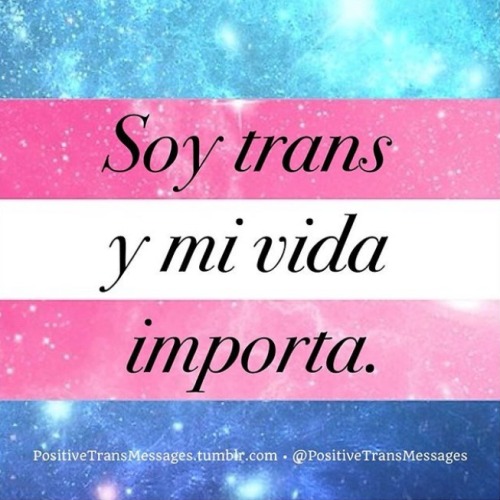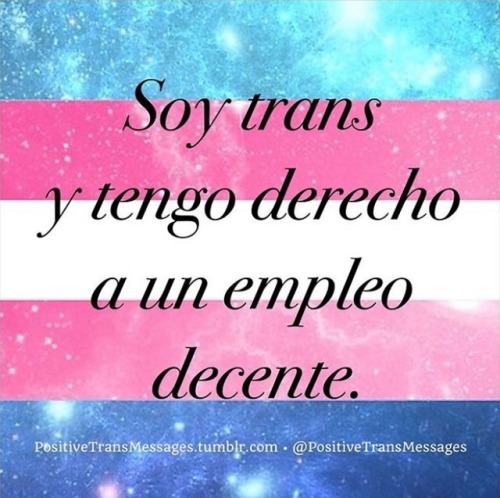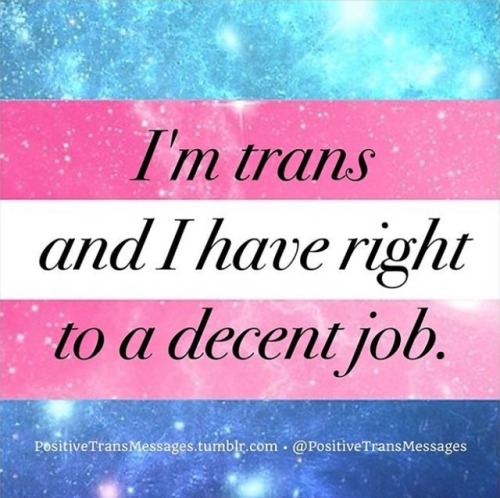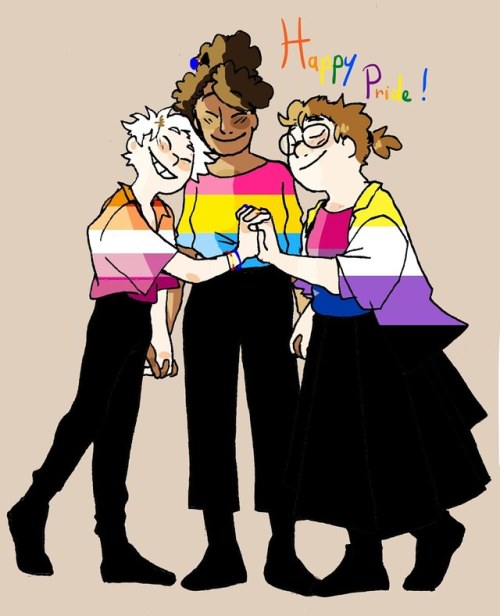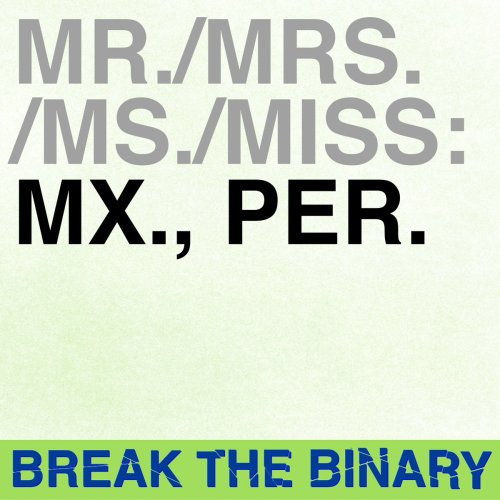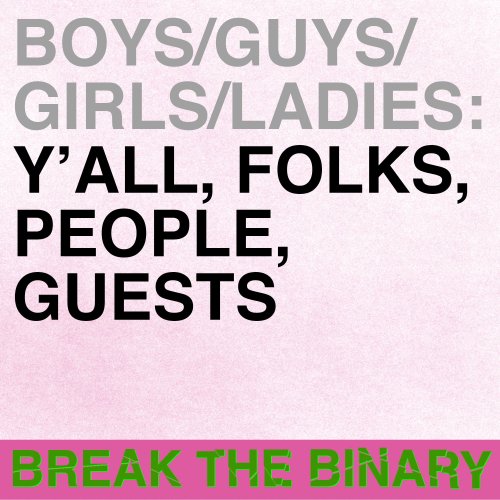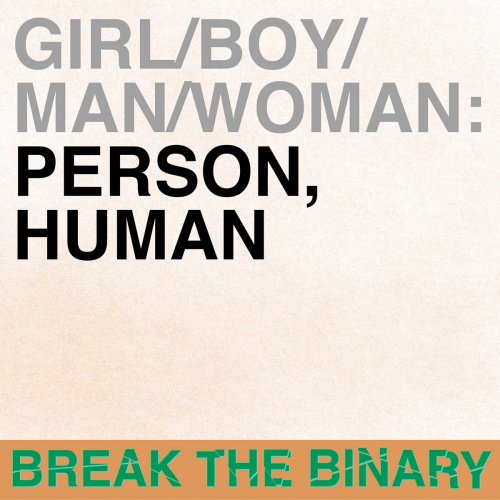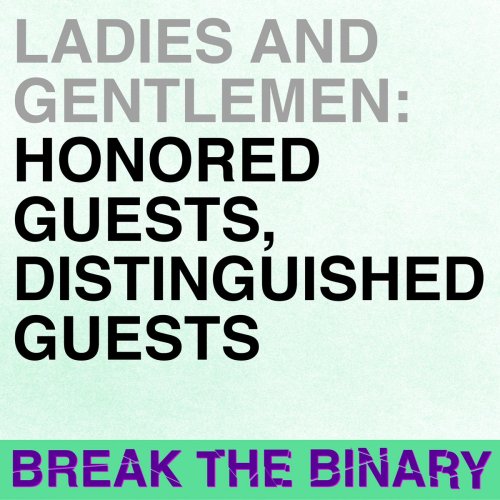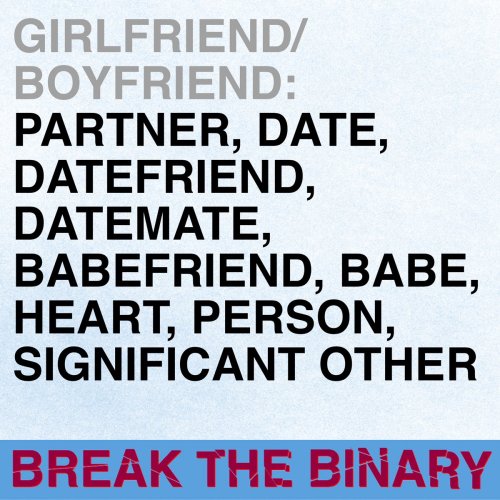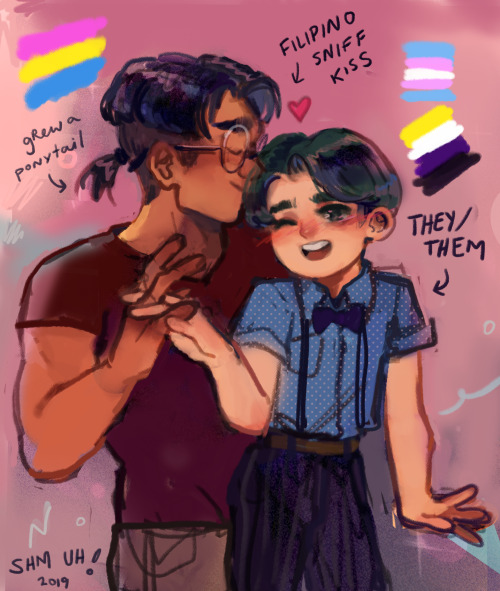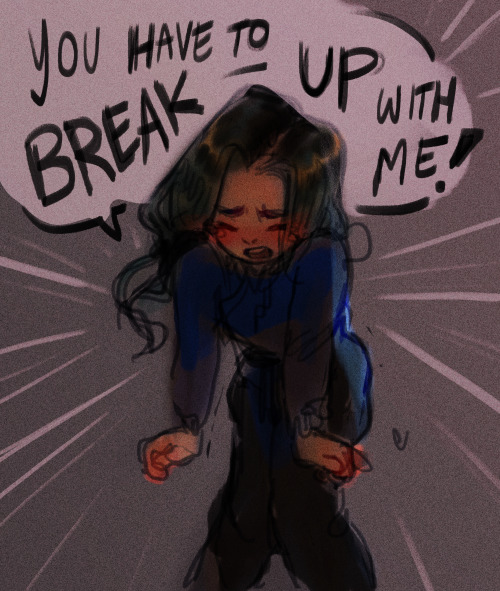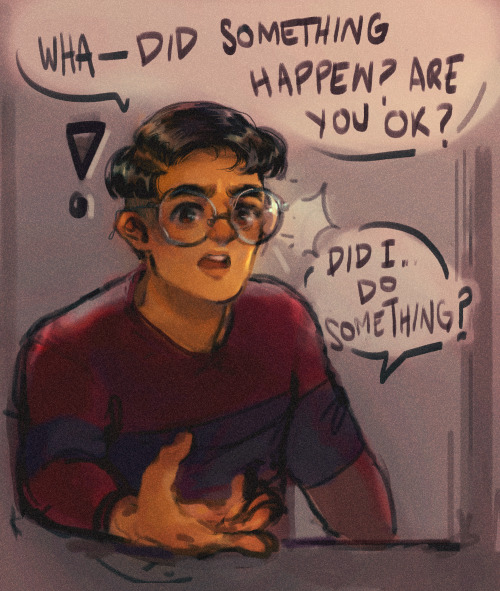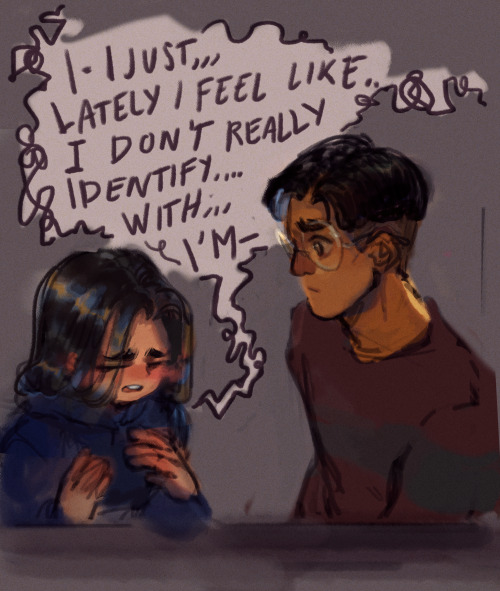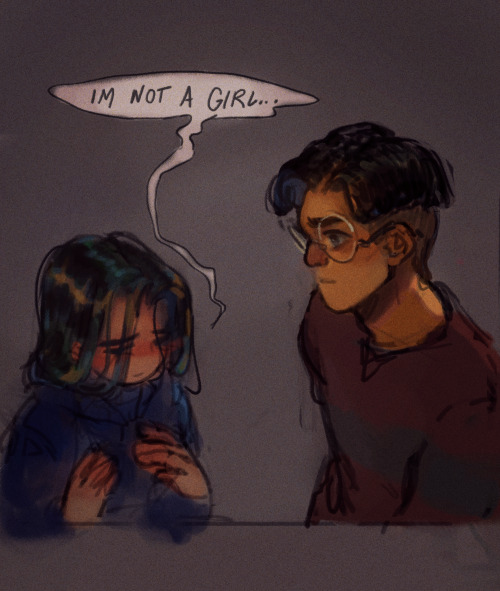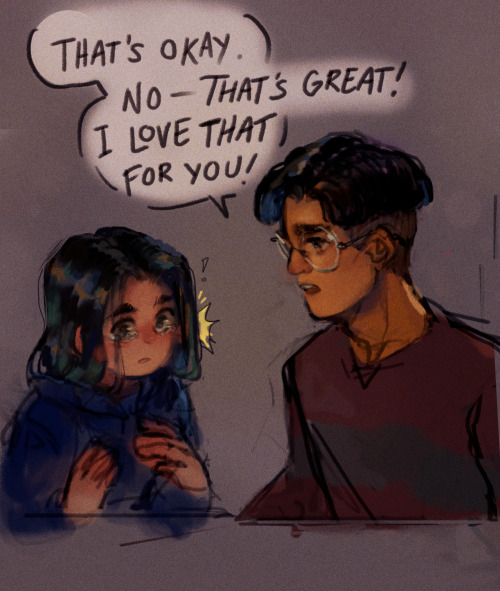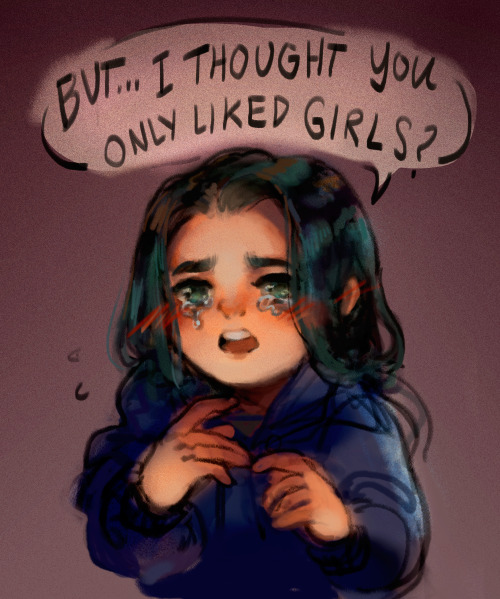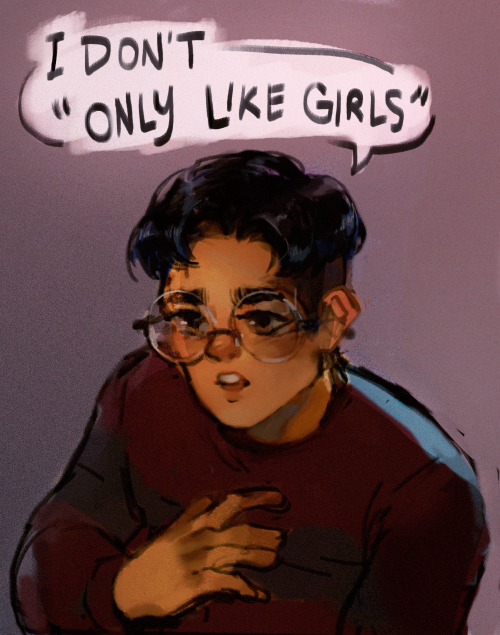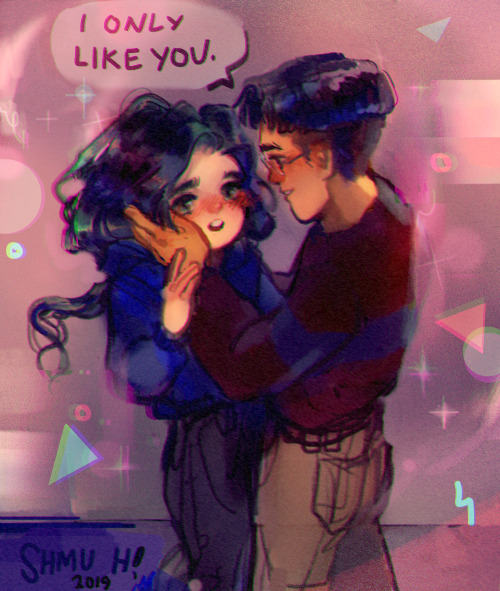#non binary
Writer Riley R.L. on the risks that come with cosmetics brands capitalizing on queer narratives.
In this op-ed, nonbinary writer Riley R.L. shares the impact of makeup on their identity, and the risks that come with cosmetic brands capitalizing on queer narratives.
October 21, 2019

“They say beauty is in the eye of the beholder,” Lady Gaga declares in the launch video for her new makeup line. “But at Haus Laboratories, we say beauty’s how you see yourself.” The video features Gaga surrounded by a racially diverse, gender nonconforming group of models showing off glittery eye makeup and bold lip colors. Its message is about freedom, specifically the freedom to express your identity however you want to. “We want you to love yourself,” Gaga concludes, and she’s got just the thing to help us do it: For $49, you can get a trio of lip products in a variety of color combos, which the brand’s website calls “tools of self-expression and reinvention.”
The Haus Laboratories launch is just one of many examples of how the cosmetics industry has been using identity narratives to market their ads with LGBTQ consumers in mind. Through pride campaigns and inclusive marketing, brands like Morphe,Milk Makeup, and M.A.C are trying to push the cultural conversation around makeup forward by bringing queer, trans, and gender nonconforming faces to the forefront, apparently as a way to help normalize the varying expressions of our community.
This mirrors a larger shift in the beauty space. LGBTQ creators like Gigi Gorgeous,Jeffree Star, and Nikita Dragun have gained huge audiences online and created successful product collaborations, while major beauty publications like Elle,Cosmopolitan, and Allure have covered the rise of queer beauty influencers and gender-neutral cosmetics brands. It’s clear that the world of cosmetics is trying to move away from the conventional standards it was previously associated with to promote an aesthetic of freedom, however ambiguously defined that may be.
For many LGBTQIA people, makeup can play a valuable, if not complicated, role in exploring gender, something that rings true in my own story. The first time I wore eye shadow out of the house, I still largely identified with the gender I had been assigned at birth; I spent most of that night worrying about what wearing makeup while presenting as male might open me up to. I feared ridicule, harassment, even violence — things that, fortunately, had not been an average part of my day-to-day life. Wearing makeup that first time was the most aware I’d ever been of the grip that gendered expectations had on the way I lived, and that realization made me feel weak and unfulfilled; all my life, I could suddenly see, I’d been under the control of beliefs about gender that I didn’t agree with, and that I had internalized without ever choosing to.
Thankfully, nothing out of the ordinary happened that night. As a kind of resistance to those feelings of weakness, I made an effort to start wearing makeup more often, and became increasingly comfortable with choosing to present and express myself in a way that was more unconventional. Ultimately, makeup was one of many things that helped me come to terms with the fact that I felt more at home outside of traditional gender roles than I did within them, and that my identity fit better under the umbrella of nonbinary than it did under male.
For me, that revelation came with a reduced emphasis on how I presented. Nowadays, I rarely wear much makeup (neither do most of my trans and nonbinary friends). But as queer identity seems to become more and more intertwined with the cosmetics industry, I find myself shying away from sharing the role that wearing makeup—a purely aesthetic part of a deeply internal process—played in that time of self-discovery. When I watch someone sell makeup under the auspices of queer self-love, regardless of how well intentioned they might be, I can’t help but feel as if a story like mine is being packaged and sold to young queer people desperate to find confidence in their own identity.
“Sometimes beauty doesn’t come naturally from within,” Gaga muses on the Haus Laboratories website. “But I’m so grateful that makeup inspired a bravery in me I didn’t know I had.” The narrative is clearer than ever: If conventional aesthetic “beauty” is no longer a marketing team’s focus, then something like “bravery” must be; rather than encouraging consumers to fit in, it’s now about using makeup to help reveal “who you are.” These brands are leveraging LGBTQIA narratives to maintain relevance in a competitive market, thanks to the very real and very complicated relationship that trans, nonbinary, and gender nonconforming people like me have with cosmetics.
An example like Sephora’s “Identify As We” campaign, full of ethereal imagery and moving ideas about freedom and identity, is certainly a progressive alternative to the kinds of advertising I was exposed to growing up. It’s easy to recall the history of hypermasculine marketing for products like Axe, whose goal was to play on conventional gender roles to make sales. Today, some brands would like us to believe that they can do better, and that by focusing on the expansive understanding of gender the LGBTQ community provides, companies can push progress forward rather than reinforce tired stereotypes.
Recently, Jonathan Van Ness, one of Queer Eye’s fab five, revealed that he’s nonbinary to Out. “[Gender is] this social construct that I don’t really feel like I fit into the way I used to,” Van Ness shared. Couched in this personal revelation was Van Ness’s sponsorship with nail polish brand Essie, something he hopes will help inspire young people: “I always used to think, Oh, I’m like a gay man, but I think any way I can let little boys and little girls know that they can express themselves, and they can, like, be… making iconic partnerships with brands like Essie no matter how they present is really important and exciting.”
Van Ness and Essie, like many of the brands mentioned, seem to operate under the assumption that visibility alone can bring much needed change in how our culture regards gender nonconformance. And maybe they’re right; but as a nonbinary person, I can’t help but question: Would my self-perception really have been different had I seen someone like Van Ness wearing nail polish on a billboard while growing up? Would I have come to understand my identity sooner had I seen a gender nonconforming person on a cosmetics display?
Many queer people grow up with a longing to be seen and validated by popular culture in the way our straight and cisgender peers are. When we come to adulthood, I worry that lingering desire may leave us with an inability to protect younger generations from the potential risks that putting value in “visibility” can conceal. If we place our trust in advertising to advance our cause rather than sharing our stories on our own terms, we’re passing them over to those whose primary goal is to profit from them. These sanitized, corporate narratives run the risk of leading young queer people to believe that embodying their identity is as simple as buying the right lipstick or wearing the right nail polish, instead of expressing themselves in whatever way feels true to them.
By creating a narrative of self-actualization based on a product, it’s easy to erase the pain that can come too. For many queer and trans people, embodying your gender is not always fun, freeing, and transformative; it can also make you a target of discriminationandviolence. Every time I choose to walk out the door with makeup on, I’m choosing to do so in spite of the world I’m walking into. At its best makeup was often a grounding ritual that helped me come to terms with my own experience of gender. At its worst the reactions it caused — condescending compliments, strange looks, yells of “faggot” from passing cars — could make it feel like a way of inscribing the dissonance between my body and identity on my skin. Those experiences, like those endured by many in my community, are the ones you aren’t so likely to hear about in a beauty ad or the next big pride campaign, because they don’t fit the right narrative. We can’t ignore that these brands are more invested in their own survival than they are in ours, and we owe it to ourselves — and to those who’ll come after us — to be careful with how we allow others to use our stories.
- - -
Source: https://www.teenvogue.com/story/beauty-brands-queer-expression-makeup
There is only one trait I have seen that genuinely nearly every nonbinary person has and that’s that we’re all a bit annoying
YOU KNOW WHATS REALLY FRUSTRATING??
GENDER STEREOTYPES
Who are you to deny me my most comfortable form of self just because it doesn’t fit your close-minded form of what YOU think I should look like

Ah, yes. The three genders. Boy. Girl. Birthday.

Split-
That’s how I’m feeling lately. I’ve come to realize that what I tried to suppress and ignore all this time just can’t be bottled up anymore, all this time I tried to embody the feminine idea/version of myself others actually wanted to see, feeling that was the key to be loved and appreciated. Often with good intentions in mind, people pushed me towards the belief that I HAD to be more feminine, more delicate, more provocative, even, to be “right” to be accepted, while joking about my goofiness, muscular build, broad shoulders, and legs, telling me that with my big"attributes" I could’ve had all the men I wanted and maybe find THE PERFECT ONE as if that was the main point of someone’s life. I silently complied, too afraid to be ridiculed or scolded and I even started to joke about it(mind you, my family did this with good intentions and good spirit but sometimes things can hurt anyway). But at this point I don’t know who I am anymore, I’m terrified to scare and disappoint all the people who appreciated me for who I was as a woman, but at the same time I’ve always felt like I was hiding under a suffocating mask. Guess it’s time to change things up!
Ps: not meant to be a complaint or a self pity thing! All the opposite,it was quite liberating and if you have any advice on how to come out to my loved ones I’d deeply appreciate it! (I’m really bad at speaking with people D: )
I had an interesting conversation today about gender and identity with a cis man who happened to have scars that looked like top surgery scars. He said “they’re not from as noble a battle wound as top surgery” and I just keep thinking about how badass that makes trans mascs sound (and he’s right, y’all are badass)
Ky Platt, 42, Lower East Side, New York
How do you ID on the gender spectrum? Idon’t really do male or female pronouns. I don’t care.
Masculinity is as complex as any other type of identity — race or whatever. Especially in this day and age — and not just in American society, but globally — masculinity is really sort of limited, and that’s sad and problematic. I see that in my own life: I have a hyper masculine African-American father who was a Golden Gloves boxer. One of my brothers is incredibly athletic; he has three sons, two of whom are gifted athletically. The other son is intellectual, but my brother favors the jocks — and I think that’s sad. Especially, because the intellectual son will probably be the agent for his jock brothers! I don’t think that the modern masculine identity is very nuanced. It’s based around a lot of insecurities that I don’t fully understand. Why is it that my brothers can’t show a complex masculine identity? Our society values the “Soldier”, the “Athlete.” We don’t even really value the “Father,” which is weird. If you’re going to be basic about masculinity, you’d think the archetype of the “Father” would be the #1 image you’d want to uphold or idealize.
Post link
Ola Nyman is non-binary
To me, it’s obvious that Ola from Sex Education is non-binary or at least somewhere on the trans spectrum, and I expect that we’ll see more of this in s2 (if we get one).
She’s* at least half-swedish and Ola is a male name in Sweden. Her father doesn’t seem like the type to break the gender binary and name his daughter Ola. It’s obviously a chosen name. I wouldn’t think twice of it if it wasn’t for all the other stuff but with the rainbows, suit and gender-neutral haircut, I think it’s obvious that they’re portraying her as lgbt, and her choice of name makes me think that she’s trans.
(*I’m using she/her because that’s the pronouns they use in the show)


Hello all non-binaries, he/theys, she/theys, it/theys, frogs, cryptids, people who have 52 genders, people who have none and anyone else who is bored of the titles Mr and Mrs/Miss.
Now Mx is great as a title and all but it’s quite difficult to pronounce and people tend to read it as Mr, so here are some of my favorite alternative non gender specific titles:
- M - My personal favorite, this has an entirely different sound to both Mr and Mrs/Miss. However it can be mixed up with the French M. meaning Monsieur which is masculine.
- Ind or Div - These are both short for individual and are pretty cool in my opinion.
- Mir - This is pronounced like ‘mer’ in Merlin and gives me high fantasy vibes.
- Sir - This is an awesome gender neutral honorific, but you might want to get a knighthood first.
- Dr - No one can argue with this one, however it may take 4-6 years to attain the required PhD.
- Mre - Pronounced ‘mystery’ or ‘miss tree’ this one is cryptid and gender non-conforming.
- Master - Even though this is conventionally thought of as a masculine title, Master is actually non-binary.
I hope I helped a fellow human being chose a title just as awesome as they are (-:
I’m practising drawing light sources and shadows and backgrounds and shit like that, so I decided to draw my OC Jupiter Chase:D their pronouns are they them

The notes aren’t the first sentence in hush little baby, everything going on here would make sense to yall if you had access to my thoughts lol,(I am trying to write a book ant this character but like, I kinda suck at writing so it probably ain’t gonna be good)
Here’s a second one with The twin sisters Calista and Brielle (ponytail) Gold

How do you know you’re asexual if you’ve never had sex? What are the different pronouns you can use for non-binary people? Tyler Ford answers these questions over at MTV News.
A useful reference for basically everyone!
Post link
I got tired of never seeing love stories that reminded me of myself. so I made one. for myself.
Post link
It’s my birthday today so if you wanna go take a watch it would mean the world to me☺️
https://www.youtube.com/watch?v=aI64CV5ZDAo&t=399s

Yet another Hollywood Actress has decided to take on a role that isn’t for them.
And I’m not saying that we should only ever hire Trans actors to play Trans characters. But, I am a strong believer that a character should be played by someone matching the character.
In the same way that Scarlett Johansson shouldn’t’ve played Major in Ghost in a Shell because she’s not Japanese (and for those…

